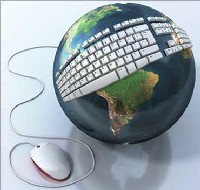Fast growing virtual online currencies and digital work worth $ 3 billion is providing real income opportunities to people in developing countries with more than 100,000 people in countries like China and India earning a living through online games and websites disseminating micro-tasks, a World Bank study says.
 The study -'Knowledge Map of the Virtual Economy' by World Bank Group's 'info' Dev program found that jobs in the virtual economy include micro-tasks like categorising products in online shops, moderating content posted to social media sites or even playing online games on behalf of wealthier players who are too busy to tend to their characters themselves.
The study -'Knowledge Map of the Virtual Economy' by World Bank Group's 'info' Dev program found that jobs in the virtual economy include micro-tasks like categorising products in online shops, moderating content posted to social media sites or even playing online games on behalf of wealthier players who are too busy to tend to their characters themselves.
Funded by Britain's Department for International Development, the study estimates that the market for such gaming-for-hire services was worth $3 billion in 2009, and it suggests that with suitable mobile technologies even the least-developed countries could benefit from this emerging virtual economy.
"Developing countries' roles in the
digital world have been mostly limited to users and consumers, not producers. But today, a growing mesh of digital services is giving rise to a new layer of entrepreneurial opportunities with very low entry barriers," said Valerie D'Costa, program manager of 'info' Dev.
Tim Kelly, 'info 'Dev's Lead ICT Policy Specialist, said, some of the poorest people in the world are already connected to digital networks through their mobile phones.
"The study shows that there are real earning opportunities in the virtual economy that will become accessible as mobile technology develops. This could significantly boost local economies and support further development of digital infrastructure in regions such as Africa and southeast Asia," Kelly said.
According to the 'info' Dev study, certain business ventures and services offered may actually detract from the experience of other internet users.
For example, harvesting and selling online gaming currencies or mass clicking 'Like' on corporate Facebook pages can create an unfair environment where legitimate game play and user opinion loses value and is represented inaccurately.
© Copyright 2024 PTI. All rights reserved. Republication or redistribution of PTI content, including by framing or similar means, is expressly prohibited without the prior written consent.

 The study -'Knowledge Map of the Virtual Economy' by World Bank Group's 'info' Dev program found that jobs in the virtual economy include micro-tasks like categorising products in online shops, moderating content posted to social media sites or even playing online games on behalf of wealthier players who are too busy to tend to their characters themselves.
The study -'Knowledge Map of the Virtual Economy' by World Bank Group's 'info' Dev program found that jobs in the virtual economy include micro-tasks like categorising products in online shops, moderating content posted to social media sites or even playing online games on behalf of wealthier players who are too busy to tend to their characters themselves.